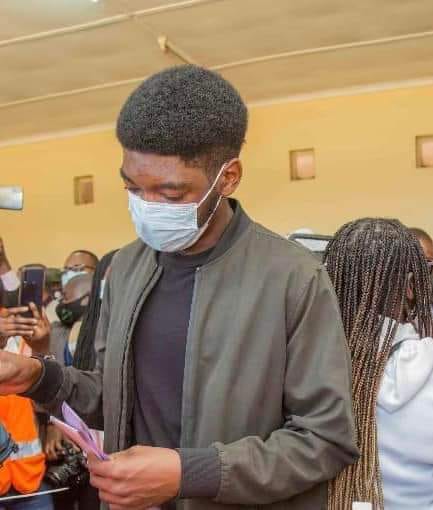HH forks out £58,000 for son’s Master’s degree in UK!
President Hakainde Hichilema says education is a critical investment that must be made universal and affordable.
And Global Partnership for Education chairman Jakaya Kikwete says the world is facing an unprecedented education crisis, which is more pronounced in the developing world.
In his summary remarks during a plenary at the Innovation Africa 2022 ministerial summit on digital transformation held at Lusaka’s Ciela Bonanza Resort, President Hichilema said he had just recently “forked out £58,000 to pay for the school bill for his last born son who was studying in UK.
“Education is critical investment for me, for us. I want to argue to my colleagues in the room here that education is not and should not be viewed as a social support element. It is a critical investment. Education itself before you even talk of what type of education and on what platform you are using, technology or manual or whatever, education is a huge investment. Education is the best equaliser. Education essentially is a human right. I dare say so, number one. Number two, if it is a human right and best equaliser, it is critical to any sector of the economy. Let us make it universal. Let us make it available to all our children,” he said.
President Hichilema said he had delivered on the promise of free education because of its importance and the need for government to afford the basic form of education to all children.
“Within the political environment there was a big ridicule coming to us that it was impossible to offer free education. There was no money but remember in my submission I said any first year student, undergraduate student doing fiancé, economics, you will learn that resources are scarce but it is how you utilise them,” President Hichilema said. “We said we would move money away from wastage and take it into education amongst others and we have done just that. We have defied all odds within the stretched resource envelope because we believe education is the best investment, best equaliser We are making it universal in this country. Education should be universal. Thirdly, if it is universal, it should be affordable, accessible. Affordable. My son is doing his masters in the UK, Mr president [former Tanzania leader Kikwete], my last born. And I just forked out £58,000. Is that necessary? Is that the way to live? [It] brings me to the fourth item, relevant to this topic and I want to confirm Mr president, I refuse to use public resources. I said ‘I will send my child to school from family resources but the issue is that how many families can afford that, those who want their children to do their masters? Even here in our own universities, a lot of kids are out of school because of the cost. So let us make it available and technology will help us, to make it affordable. E-learning, will make it easy for every kid that has grey matter to be able to go to school and governments like us must support the kids to go to school.”
President Hichilema called for investments in education and innovation from the private sector.
“It should become a norm not the exception because the private sector needs the skills. The government is using public resources, it must make the skills available. So this partnership must go beyond funding a conference like this. …during the vacation to go to vacation employment…to partner with industry, institutions of learning, governments on one side partnering with industry to give our kids an early opportunity to experience a working environment when they are in their first year, second year in college. By the time they graduate they get the disciplines of working for somebody or working for themselves,” said President Hichilema.
And Kikwete said the world is facing an unprecedented education crisis which is more pronounced in the developing world.
“The crisis is being felt in every corner of our beloved continent. The world must meet the education crisis baldly, resolutely and expeditiously,” he said. “I speak not only as former president of my dear country Tanzania but also as the board chair of Global Partnership for Education who is the first African to hold this position in the 20 years of the life of GPE.”
He said Africa had demonstrated that big progress in education is possible.
“Before the pandemic, Africa was gaining ground. 67 per cent of children in GPE partner countries in Africa attended school. 40 per cent completed school and more girls went to school. Learning outcomes have improved in a number of countries. Nonetheless, in the last decade progress has slowed. Now the pandemic, climate change, humanitarian crisis and the global economic downturn are taking us even further in the wrong direction. These factors could drive another 5.5 million African children to join the 100 million children who are already out of school for various reasons,” Kikwete said.
“The world had 240 million children and young people out of school. Unfortunately, 100 million of these are from Africa. Of all the five continents’ 240 million, Africa contributes 100 million. This is just too much. Globally this generation of children, students ,risks losing $21 trillion in potential life earnings. An increase of $4 trillion in just one year. We must reverse this trajectory.”
He said there was need to mobilise more funds and leverage international funding for education especially for maginalised children.
Kikwete said GPE has provided $7 billion so far as funding for the sector.
-Mast
